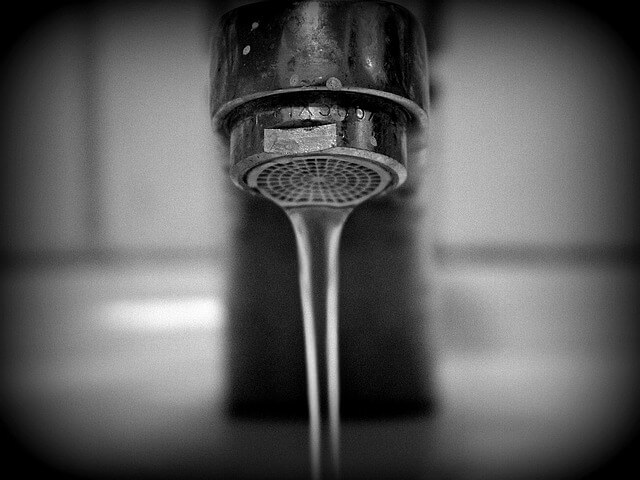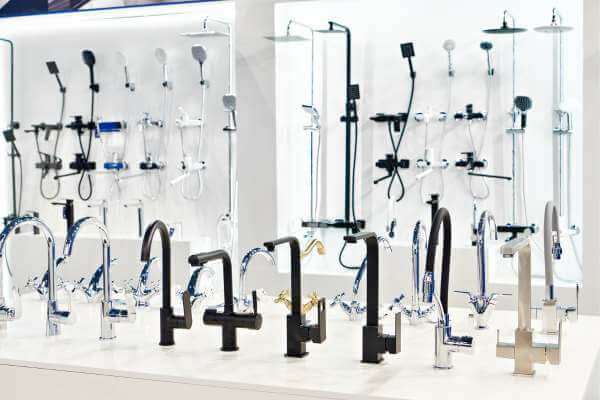Have you ever noticed a strange noise when you turn on the hot water faucet or shower? Maybe it sounds like humming, knocking, screeching, or tapping. While some noise from the water heater is normal, especially when it is heating up, some sounds may indicate a problem that needs to be fix. In this article, I will explain why there is a noise when running hot water and what you can do to stop it.
The Causes of Noise When Running Hot Water
There are different reasons why your hot water pipes or water heater may make noise when you run hot water. Some of the most common causes are:
Incorrect installation of CPVC pipes
CPVC pipes are plastic pipes that are used for hot water supply. They tend to expand when hot water runs through them, which can cause them to rub against the walls or other objects if they are not installed with enough space around them. This can create a creaking or banging noise.
Water hammer
Water hammer is the term for the noise that occurs when water suddenly stops or changes direction in the pipes. This can happen when you turn off the faucet or shower abruptly, or when a valve closes too quickly. The water pressure builds up and creates a shock wave that makes a loud thud or knocks sound.
Check valve problems
Check valves are devices that prevent water from flowing back into the pipes or water heater. They are usually located near the faucets or showerheads. If they are faulty or clogged, they can cause water to flow through them with difficulty, creating a high-pitched screeching or screaming noise.
Sediment buildup
Sediment is the term for the mineral deposits that accumulate at the bottom of the water heater tank over time. It can reduce the efficiency and capacity of the water heater, as well as cause corrosion and damage to the heating elements. Sediment can also create a tapping or popping noise when it interacts with the hot water.
The Solutions for Noise When Running Hot Water
Depending on the cause of the noise, there are different solutions that you can try to stop it. Some of them are:
Tighten or relocate the CPVC pipes
If the noise is caused by CPVC pipes that are installed too close to the walls or other objects, you can try to tighten them with clamps or brackets to reduce their movement. Alternatively, you can relocate them to create more space around them. This may require professional help from a plumber.
Install a water hammer arrestor
If the noise is caused by water hammer, you can install a device called a water hammer arrestor near the source of the noise. A water hammer arrestor is a small chamber that absorbs the shock wave and prevents it from traveling through the pipes. You can find them at most hardware stores and they are easy to install.
Inspect and replace the check valves.
If the noise is caused by check valve problems, you can inspect them and see if they are dirty, damaged, or stuck. You can try to clean them with vinegar or replace them with new ones if necessary. You may need to call a plumber for this task.
Drain and flush the water heater tank
If the noise is caused by sediment buildup, you can drain and flush the water heater tank to remove it. This should be done at least once a year as part of regular maintenance. You can do this yourself by following these steps:
- Turn off the power and gas supply to the water heater.
- Turn off the cold water supply valve to the water heater.
- Attach a garden hose to the drain valve at the bottom of the tank and run it to a floor drain or outside.
- Open a hot water faucet in your home to release pressure from the tank.
- Open the drain valve and let the water flow out until it is clear and free of sediment.
- Close the drain valve and disconnect the hose.
- Turn on the cold water supply valve and let the tank fill up again.
- Turn on the power and gas supply to the water heater.
Is it normal for heating pipes to make noise?
With prolonged and frequent usage, air may infiltrate your central heating system, and once an ample amount of air is trapped, it can lead to audible sounds from your pipes and system. As water and air circulate through pipes and radiators, it can produce clicking, ticking, or tapping sounds.
Should I be worried about loud pipes?
The presence of loud noises emanating from your piping system can serve as a red flag for a potential plumbing malfunction or a sequence of plumbing complications in your pipes. If these blockages and drainage impediments are not promptly addressed, they can escalate into catastrophic problems over time.
How do you know if you have air in your water pipes?
If there is air present in your water pipes, it will produce a hissing or popping sound. In addition, the trapped air can create loud, continuous vibrating noises and gurgling sounds. Another sign of air in the pipes is loud banging noises that we hear from the pipes, indicating that air is traveling through the system.
Conclusion
Noise when running hot water is not uncommon, but it can be annoying and indicate a problem with your plumbing system. By identifying the cause of the noise and applying the appropriate solution, you can stop the noise and prevent further damage to your pipes or water heater. If you are not sure how to fix the noise or if the noise persists after trying the solutions, you should contact a professional plumber for assistance. A plumber can inspect your plumbing system and perform any necessary repairs or replacements. A plumber can also advise you on how to maintain your plumbing system and prevent noise from occurring in the future.


 Hi, my name is Debra Klein and I love modern kitchen designs! As a product reviewer, it’s my mission to help homeowners choose the right modern kitchen accessories for their homes. I want to give them the best solution possible so they can make the best decision for their needs. Thanks for reading!
Hi, my name is Debra Klein and I love modern kitchen designs! As a product reviewer, it’s my mission to help homeowners choose the right modern kitchen accessories for their homes. I want to give them the best solution possible so they can make the best decision for their needs. Thanks for reading!




